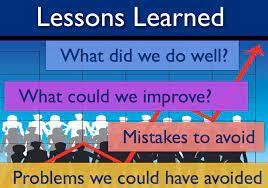Matt Bai writes that the story of Deborah Birx is a tale for the ages:
Birx isn’t one of the political hacks who did Trump’s bidding until it was time to save her reputation by making an empty show of principle. (Ahem, Elaine Chao.)
No, Birx is a retired Army colonel and respected doctor who made a tangible difference in the global fight against AIDS. As Trump’s White House coordinator for the pandemic response, she worked tirelessly to get the coronavirus under control — no one disputes that.
She was put in an impossible predicament, something Birx has been vocal about since she left the White House, most recently in a much-hyped CNN interview with Sanjay Gupta that aired this past weekend.
Birx says now that she was constantly marginalized by the loopy sycophants in Trump’s orbit and berated by the president himself. “It was very uncomfortable, very direct, and very difficult to hear,” she said of one memorable conversation with the now-former president.
There are a number of former military people who chose to work for Trump. Most of them -- the exception seems to be Mike Pompeo -- now regret their decision:
Birx operated on the same premise that many others in senior roles, including career soldiers such as former White House chief of staff John F. Kelly and onetime national security adviser H.R. McMaster, accepted as well.
She apparently woke up every morning believing it was nobler to try to manage an ignorant, mercurial president than it was to speak out publicly and risk losing all influence.
She no doubt told herself she had an obligation, as a policy expert, to do whatever she could to protect Americans from the administration’s abject incompetence. And if that meant she had to echo untruths and offer up a bunch of silly praise, so be it.
You would think, two generations after Robert McNamara’s misguided attempts to conceal the truth about Vietnam, that more of them might have internalized the cost of perpetuating political myths.)
It's been almost fifty years since the Vietnam War came to its horrific end. Lessons learned?
You have to wonder.
Image: theguardian.com




























